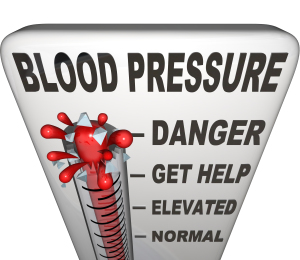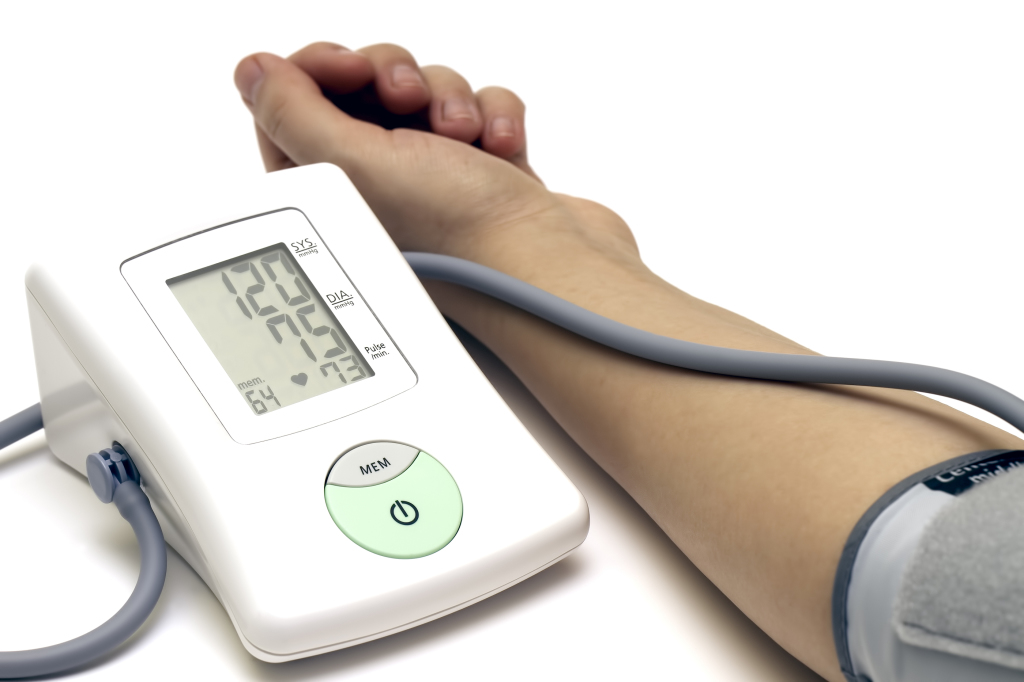This article will explain what high blood pressure is and why it is important.
The heart pumps blood through the body through a complex network of blood vessels called arteries. The flowing blood within the artery exerts a particular pressure which is a direct reflection of the pressure at which the heart is pumping blood.
This pressure that is exerted within the arteries is called blood pressure.
In some individuals, the blood pressure can be elevated over and above what is considered normal. This condition is called high blood pressure, also commonly called hypertension.
Hypertension is a well-known risk factor in the development of cardiovascular disease.
In this section, we shall briefly review what blood pressure is and talk about how it can be controlled. If you wish to watch a brief animation video on understanding hypertension, click here.
[toc]Normal Blood Pressure
When the blood flows through the blood vessels, with every contraction of the heart, it exerts pressure on the walls of the blood vessel. This pressure is known as systolic blood pressure.
Once the artery has contracted and begins to relax, the remaining pressure that exists within the blood vessels is called the diastolic blood pressure.
Blood pressure is expressed as systolic blood pressure/diastolic blood pressure and is expressed in millimetres of mercury (mmHg). This is because it is commonly measured using the mercury column within a sphygmomanometer.
The normal blood pressure in humans is around 120/80 mmHg.
However, there exists a ‘normal range’ for blood pressure. The normal systolic blood pressure ranges between 100 to 130 mmHg while the normal diastolic blood pressure ranges between 60 to 90 mmHg.

What Is High Blood Pressure?
High blood pressure is a condition where the blood flowing through the arteries exerts a very high pressure on its walls as it is travelling through.
The reading that is obtained in patients with high blood pressure is a direct reflection of how much blood is being pumped by the heart and what resistance is being offered by the blood vessels as the blood is flowing through it.
In other words, if the heart pumps more blood and the arteries in the body are extremely narrow, the blood pressure will be a lot higher.
if the heart pumps more blood and the arteries in the body are extremely narrow, the blood pressure will be a lot higher.
What Causes High Blood Pressure?
There are two different kinds of hypertension depending upon the cause.
Primary hypertension is a condition where no clear cause has been identified.
Secondary hypertension is one where there is a cause or a condition that has led to high blood pressure. Let’s take a closer look at each of them.
Primary Hypertension
Primary hypertension is also called essential hypertension. This is the most common type of hypertension that is seen in adults.
In primary hypertension, there is no clear cause of high blood pressure that is identified despite extensive testing.
Primary hypertension usually does not occur over a matter of days or weeks but often builds up over a period of years. Many a times, patients are unaware that they have high blood pressure and it is discovered on a routine physical examination or a master health checkup.
Since hypertension can exist without creating symptoms and can cause heart disease in patients, is sometimes called a ‘silent killer’.
Secondary Hypertension
In secondary hypertension, the high blood pressure occurs due to an underlying cause. It tends to occur in younger individuals and typically the blood pressure elevation is seen over a very short period of time (or suddenly).
The common causes of secondary hypertension are briefly listed below –
[list style=”arrow-right”] [li]Blood vessel problems such as renal artery stenosis[/li] [li]Kidney disease[/li] [li]Thyroid disease[/li] [li]Oral contraceptive pills[/li] [li]Adrenal gland problems[/li] [li]Excessive consumption of alcohol[/li] [li]Different kinds of medication (such as cold medicines)[/li] [li]Obstructive sleep apnoea[/li] [/list]Risk Factors For Hypertension
There are certain common risk factors that can increase the chance of an individual developing hypertension. In fact, targeting some of them can reduce one’s chance of developing high blood pressure.
1. Advancing age
The risk of developing high blood pressure increases as we get older. In men, the risk increases after the age of 45 years whereas in women it is likely to occur after the age of 60 years.
2. Family history
Individuals who have a strong family history of high blood pressure are at a higher risk of developing the condition as compared to people who do not.
 3. High body weight
3. High body weight
People who are overweight or obese are at a higher risk of developing high blood pressure. This is because the larger body mass means more blood needs to be pumped to the arteries.
As more and more blood is being pumped, the pressure within the arteries increases and this causes hypertension.
4. High intake of salt
This is an important risk factor. It is not salt that causes the high blood pressure but it is the sodium that is present within salt that can eventually lead to it.
This is because sodium has a property of holding onto water and an increase in the water content in the body can increase blood pressure.
5. Lack of exercise
This is yet another common risk factor especially in the Indian population. Our busy lives (I work and personal) leaving little time for physical exercise.
People who do not exercise regularly and those who lead a sedentary lifestyles tend to have a high heart rate than those who exercise regularly.
A high heart rate can indirectly mean that the heart is beating a lot harder than it should do, and over time this can result in high blood pressure.
6. Smoking
Smoking has been well recognised as a risk factor in cardiovascular disease. The toxins in the smoke can damage blood vessels and can over time lead to high blood pressure.
7. Chewing tobacco
Chewing tobacco can increase blood pressure suddenly and this too can cause hypertension over a period of time.
8. Ethnicity
As South Asians, we are inherently at a higher risk of developing hypertension.
However, most of the risk factors mentioned above are reversible and measures can be taken to prevent the development of high blood pressure through simple lifestyle modifications and diet and exercise.
9. Excessive alcohol intake
Consuming large amounts of alcohol on a regular basis can lead to high blood pressure. If you wish to learn more, click on our post regarding ‘alcohol and your heart’ for more information.
10. High stress levels
High stress either at work or at home is well known to increase blood pressure. Combining this with other risk factors can make the likelihood of developing sustained high blood pressure over a period of time and inevitability.
Diagnosing High Blood Pressure
Most patients who have high blood pressure do not have any symptoms. For this reason, the elevated levels of blood pressure are often recorded when the patient undergoes a routine medical examination at a hospital or doctor’s clinic.
However, there may be times when the blood pressure may not really be elevated, and the high readings obtained in clinic are due to ‘stress’ or ‘tension’ of being in a doctor’s clinic.
This is called ‘white coat hypertension‘.
Patients who have white coat hypertension may need investigations such as an ambulatory blood pressure recording to confirm the presence of high blood pressure even in a home environment.
Additional tests that may be performed that will aid a diagnosis include –
- Electrocardiogram (ECG) – Specific changes may be seen in patients who have high blood pressure.
- Blood tests – These may be performed to determine elevated levels of creatinine that could indicate damage to the kidneys from high blood pressure. Other special tests may be performed that will determine the cause of high blood pressure.
- Echocardiography – Patients who have had high blood pressure for a while may have a slightly thicker heart muscle on the scan.
- Ultrasound scan of kidneys – This can help determine the presence of any kidney disease or a change in the blood flow to the kidneys (renal artery stenosis).
- Chest x-ray – This may be performed to determine the state of the ribs, heart and lungs.
- Renal doppler – This test is useful in looking at the amount of blood that reaches the kidneys. In renal artery stenosis, the narrowing of the blood vessel that supplies the kidney (the renal artery) may be seen with this test.
Other tests may be requested in some cases depending on the results obtained from the above tests.
How Is High Blood Pressure Treated?
Treatment of high blood pressure is a combination of lifestyle changes and medication. Click on the images below to read further.



